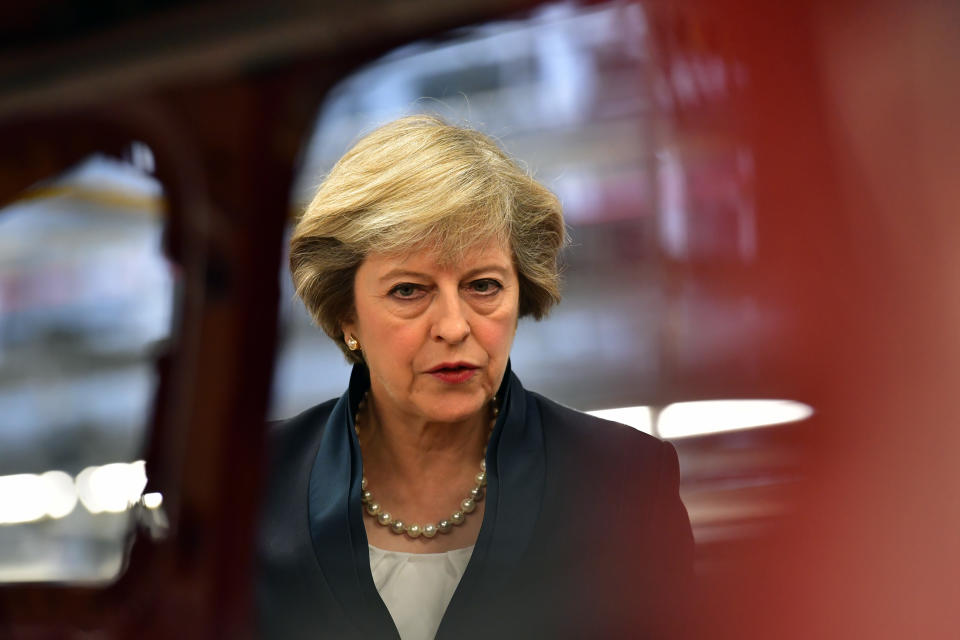What is a no-deal Brexit?
The UK’s withdrawal from the European Union is scheduled for 29 March 2019 at 11pm London time, but there are deep concerns that the country could fall out of the EU without finalising a legal divorce deal.
Prime minister Theresa May and her EU counterparts have hammered out a deal outlining the divorce terms and plans for their future trading relationship. But May has failed to get her deal approved by the UK parliament, which is necessary to avoid a so-called “no-deal” scenario. Her deal has been so contentious, her own Conservative party nearly ousted her on 12 December.
Various strategists have warned ongoing political chaos raises the risk of a no-deal Brexit in March, though they broadly believe there’s only a small chance of this happening.
Here’s what you need to know about a no-deal Brexit:
What is a no-deal Brexit?
At its most basic level, a no-deal Brexit would see the UK leave the EU without any new formalised arrangements covering crucial issues including trade, migration, border control and even flights across the English channel. It’s feared that there would also be no transition period, leading to a so-called “cliff edge” for businesses that would struggle to adapt to a new trading environment with the EU from the end of March 2019.
Many consider this to be a worst-case scenario. The Bank of England warned last month that the UK economy could shrink by about 8% within a year if there’s no deal and no transition period. That fall would be the worst the country has seen in roughly 100 years. The pound would crash, inflation would spike and house prices could fall by about one-third in this scenario.
Why is a no-deal Brexit so bad?
It all comes down to context.
The UK currently enjoys frictionless trade with the other 27 EU countries, with a so-called “customs union” ensuring goods can flow between the nations without any restrictions, tariffs or customs checks. These nations operate as a single trading zone and impose tariffs on goods from countries outside their customs union, but once the items come in, they move around freely.
Leaving the EU without a new deal would mean the re-imposition of border checks and tariffs between both sides; a potentially disastrous situation for UK-based companies like car manufacturers who depend on moving their components across EU borders. Roughly 44% of all UK exports go to the EU each year, and more than 50% of its imports come from the bloc. Any slowdown at the border threatens to cause major factory shutdowns.
The UK is also part of the EU’s “single market,” which allows for the free movement of goods, along with services, investment and EU citizens. This could be likened to a free trade deal on steroids. As it stands now, a German doctor can move to the UK and find work in his field without any restrictions. A British firm can seamlessly provide banking services to Italian businesses without any issues.
This EU single market requires the harmonisation and standardisation of regulations across member nations, covering areas like product safety and environmental protection. This eases trade and ensures common standards.
READ MORE: No-deal Brexit could halve Irish economy’s growth in 2019
In a no-deal scenario, British businesses could be immediately shut out of providing services to their European partners and money would not be able to flow seamlessly across borders. Plus, Brits living in the EU, along with Europeans living in the UK, could run into a range of problems related to their legal status.
If there’s no deal, the UK is expected to revert to World Trade Organization (WTO) trading rules, leading to a flurry of new customs checks, paperwork and tariffs at the borders, slowing down imports and exports of items including car parts, fresh food and smartphones.
The UK would also be ejected from all the EU’s previously agreed free trade deals and treaties with outside nations, including the newly minted trade deals with Canada and Japan.
May’s deal isn’t ideal, but it’s the best option for business

May’s deal, which includes a transition period with the EU lasting until at least December 2020, is considered a poor choice for business compared to the status quo of EU membership. But the agreement is considered better than no deal at all.
The text does not guarantee “frictionless trade” in goods, which threatens to slow down trade between the two sides and damage business confidence. And experts agree it doesn’t go far enough in terms of coordinating trade in services. UK-based service providers such as banks and telecommunications companies would be put at a disadvantage.
The deal also stops the free movement of EU citizens into the UK, which limits staffing options for British businesses.
READ MORE: The shocking disconnect between rhetoric and reality on immigration
Still, businesses appreciate that May’s agreement gives them time to adjust to a new reality outside the EU and provides more clarity about the new rules of the game.
However, many MPs have deep concerns about plans for the Irish border between Northern Ireland (part of the UK) and the Republic of Ireland (which will remain in the EU.) As it stands now, people, goods and even cows can move across the border without any checks.
Both the UK and EU have promised to keep this border open to maintain peace across the island. But this plan could force the UK to remain inside the EU customs union after the Brexit transition period has ended, which is an option that many MPs say they cannot support.

 Yahoo Movies
Yahoo Movies 